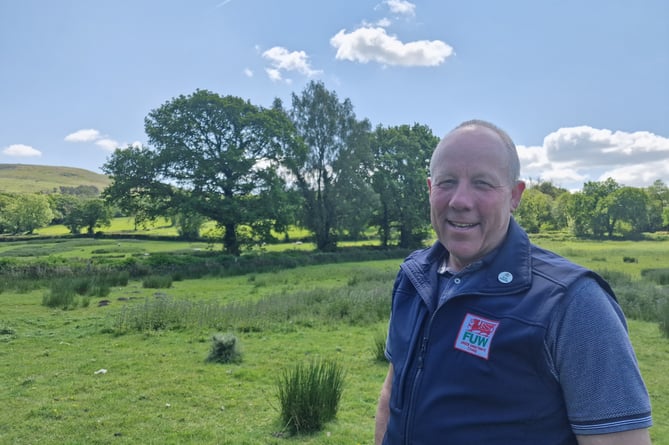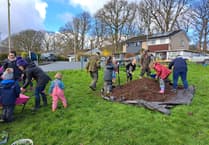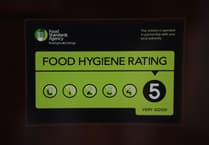2024 promises to be a momentous year not just for agriculture in Wales, as we engage with the final Sustainable Farming Scheme consultation, but also across the political realm with a a General Election on the horizon and we will also see a new First Minister with Welsh Labour about to embark upon a leadership election following the decision by Mark Drakeford to announce his retirement.
For Wales and farming there are big issues at stake. At the front of our minds is the final Sustainable Farming Scheme (SFS) consultation. The SFS is going to form the mechanism through which farmers will receive support in Wales from 2025 onwards. I urge members to engage fully with us on this as a matter of urgency. It is the most important change to Welsh agricultural policy since the genesis of the Common Agricultural Policy in 1962 and we as an Union know that we can’t afford to get this wrong.
Any future payment scheme based on environmental and public goods outcomes must protect family farms, support rural communities and maintain employment in rural Wales. Such a scheme must ensure that agriculture is both sustainable and rewarding. To fail to do so will most likely lead to serious damage to Wales’ family farms and the role they play in Wales’ economy, society, culture and landscape.
Policy priorities that we have outlined time and time again during 2023 and over the various other consultations over the past five years continue to underpin our key asks in relation to the Sustainable Farming Scheme. This SFS must be practical for all farmers in Wales and deliver on our economic, environmental and social sustainability goals. There might be some among us who can manage without that direct support, but looking at the Welsh Farm Business Survey, the majority of us rely on such support for the survival of our farm business. It would be folly to suggest that as a sector we can manage and thrive without any support.
Securing funding for the sector therefore remains an essential element of our focus for this coming year. Whilst we recognise the challenges that the Welsh Government must contend with, the entire Departmental Rural Affairs Budget of £482 million represents just 2% of the Welsh Government Budget. It is vitally important that as a minimum, this budget is maintained to ensure that our obligations and ambitions in relation to food, nature and climate are achieved.
If you have read our ‘The role of farm support in Wales’ livestock supply chains’ report, it is clear what would need to change if the direct support payments were to be reduced significantly. We used five years of Welsh Farm Business Survey figures to investigate what increases in profits or reductions in selected input costs would be needed to maintain average livestock farm profits if direct support was cut by 50% and 100%. The resulting figures make for very uncomfortable reading and should serve as a warning to those who think that the industry can continue to produce food whilst also delivering on the many other key asks made of agriculture by the Government.
As we go into a New Year that may well see a change of Government at Westminster and new leadership within Government here in Wales it is more important than ever for politicians and policy makers to fully understand the economic role played by farm support within the context of our rural economy. Let me be absolutely clear - any cuts, however large, will have a knock on effect on many non-farming businesses here in Wales with our modelled worst case scenario showing that some non-farming business sectors would lose tens of millions in income. The inevitable impact of such a decline in business activity here in rural Wales will undoubtedly have a direct impact on business viability, rural employment and the very communities that are the backbone of rural Wales. There is also a very clear disconnect between Government aspirations to have environmental policies and the failures (as we have seen with the Habitat Wales Scheme) to support such schemes with adequate funding.
This coming year will no doubt bring with it many challenges but we will be there for our members, striving to ensure we have thriving, sustainable, family farms in Wales for generations to come.




